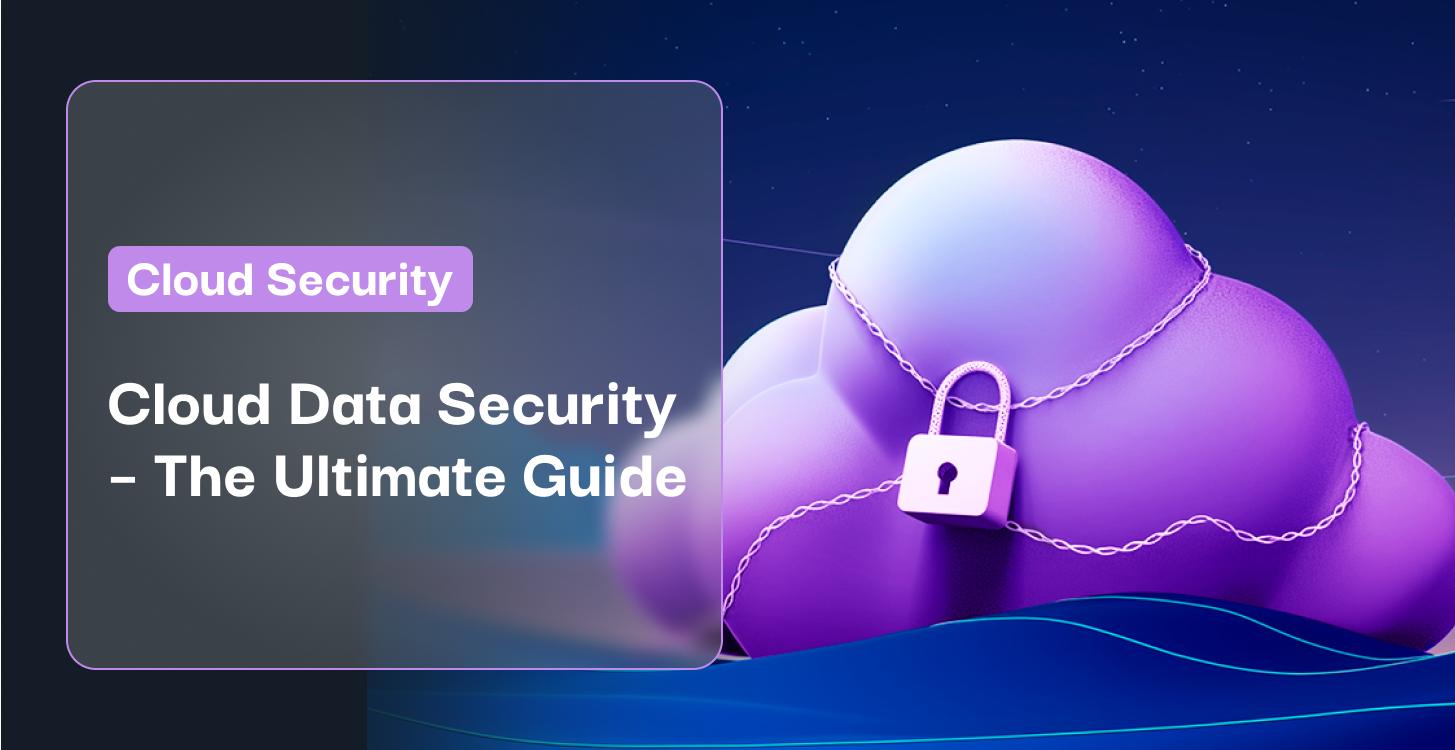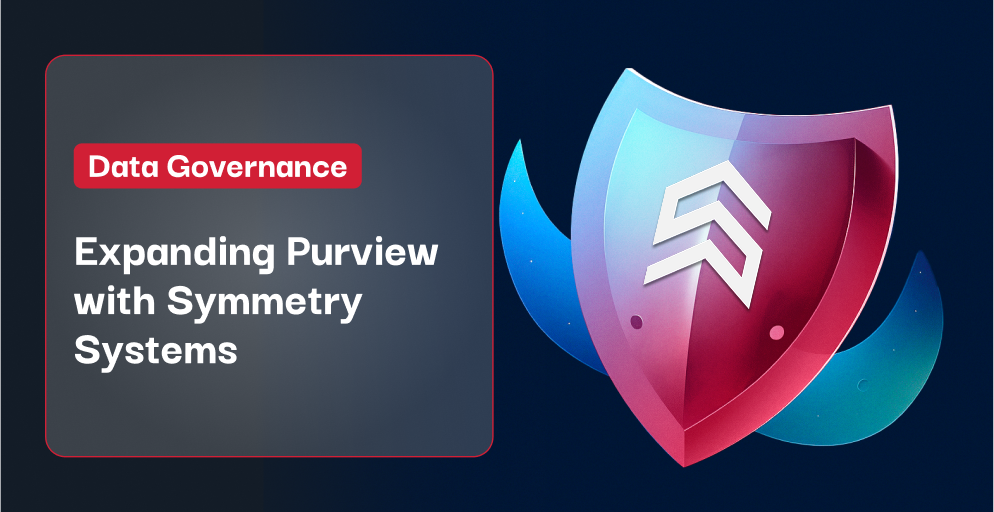Everything you need to know about cloud data security at a glance.
Cloud computing has forever changed the way business and technology work. With more and more data being produced every day, more companies are looking to cloud services to provide them with the management they need. Gartner has predicted that spending on cloud services across the world will reach over $482 billion in 2022, up from $313 billion in 2020.
That growth brings with it serious concerns about data security. In 2020, 70% of companies that utilize the cloud for data storage fell victim to incidents that put their information at risk. In light of that, we’ve put together this guide to help CISOs stay on top of current cloud data security best practices.
Jump to a section
A Refresher on Essential Cloud Data Security Standards
Data Security Technologies to Watch in 2022
Hybrid Cloud Security Platforms
Identity and Access Management Platforms
Enterprise Cloud Security in 2022
What to Know About Cloud Ransomware
Cloud Data Security Solutions for Modern Enterprises
Check Point CloudGuard for Cloud Network Security
A Refresher on Essential Cloud Data Security Standards
Security standards to keep data safe must evolve in tandem with changes in technology. These eight cloud data security standards are widely accepted ways of ensuring system interoperability and maintaining business continuity. It’s sound practice for IT professionals to check each organization’s latest requirements to ensure compliance with current standards.
GDPR. As one of the most strict data privacy laws in the world, the EU’s General Data Protection Regulation (GDPR) released some noteworthy updates including new permissions for cookie policies.
PCI DSS. The Payment Card Industry Data Security Standard (PCI DSS) announced that the new 4.0 release will be published in March of 2022.
HIPAA. The Health Insurance Portability and Accountability Act (HIPAA) has been around since the mid-90s but has seen many changes since then. Recently, those changes involve responses to COVID-19 and the CARES Act.
ACSC. This Australian entity has updated its Essential Eight Maturity Model to prioritize the concept of implementing all eight strategies at the same time.
ISO. The International Organization for Standardization (ISO) creates international industry standards including those for security management systems.
SOC2. The Service Organization Control (SOC2) has some audit updates that necessitate looking into to make sure you’re aligned with compliance to customers, partners, vendors, and investors.
NIST. The cloud security standards of the National Institute of Regulations and Technology (NIST) have been updated to take into account overlapping federal relations. The Security and Privacy Controls for Information Systems is something to pay particular attention to.
CIS. The Center for Internet Security has updated its open-source guidelines to help companies ensure their systems remain secure and compliant.
Read 8 Essential Cloud Data Security Standards to Brush Up On in 2022 for more detail about the latest updates to industry standards.
Data Security Technologies to Watch in 2024
It’s also key to be on top of emerging technologies in the space as well. COVID has shifted what work looks like for many companies, and according to a Gallup poll, 45% of full-time employees in the U.S. worked from home in September 2021.
Hybrid Cloud Security Platforms
“Hybrid” refers to a mix of on-premises and multi-cloud technology that allows businesses access to all the services they need. This type of platform allows organizations to diversify their data asset storage while still maintaining high levels of security.
Symmetry Systems DataGuard creates a custom risk map of an organization’s data stores, revealing security liabilities like loose credentials and sensitive dormant data. It also serves as an early warning system for breach detection and response, crucial for risk mitigation.
Identity and Access Management Platforms
Though identity and access management (IAM) is not new to the scene, it has become more important than ever with the increase in remote work. IAM solutions nowadays need to be built to handle remote work so that there are reduced chances of unwanted access.
Okta is one of the leading IAM solutions for cloud or hybrid cloud environments. It offers a Zero Trust solution with standard features like MFA and intelligent security that leverages data from across their network to identify threats.
Cloud Data Encryption
With the rise in remote work, security leaders should be looking to invest in a cloud encryption solution to ensure that remote workers can do their job safely. Work environments are now distributed, and an organization’s data that goes between the users and the cloud applications become more vulnerable to threats.
Baffle is a no-code, easy-to-implement encryption solution that provides robust encryption at scale. Designed specifically for cloud environments, Baffle is capable of handling tens of billions of records with no impact on performance.
Our post 3 Technologies for Data Security in Cloud Computing to Watch in 2022 shares more information about the technologies helping organizations adapt to distributed work.
Enterprise Cloud Security
Cloud security is an ongoing concern for businesses of any size, but large enterprises bring with them unique challenges. Bigger organizations typically have data spread across on-prem, as well as both public and private clouds. Security professionals handling that kind of array should focus on the following areas:
Cloud Visibility
Insufficient visibility into an organization’s cloud infrastructure is a major issue in cloud security. Without that visibility, it is impossible to know all vulnerabilities and thus, impossible to create new strategies to implement.
Data Deletion
Deleting data that is no longer needed is one of the best ways for organizations to protect information assets. However, this becomes more complex with an enterprise as the sheer scale of operations allows more room for sensitive data to stay within the cloud infrastructure, where it is vulnerable. Thus, a data deletion protocol specifically for enterprises is necessary.
Volume
Enterprises need a security strategy that can maintain safety for the volume of employees using cloud applications and data from work sites. Included in that strategy needs to be the use of a cloud IAM solution that protects sensitive data from being accessed by the wrong personnel. In addition to that, the strategy also needs to include cloud encryption intended for enterprise-level cloud usage, ideally dedicated cloud data encryption solutions.
Speed
Though cloud applications allow organizations to speed up the process of technical innovation, it leaves room for error when it comes to security. To mitigate this risk, security teams should work as part of the dev team and vice versa. Both need to be well-versed in what the other team does so that you can increase the size of your security while improving your speed.
Our post The Ultimate Guide to Enterprise Cloud Security for 2022 goes into more detail about what an enterprise can do to ensure the highest level of security with an organization of that size.
What to Know About Cloud Ransomware
As organizations continue to increase the amount of sensitive data they store online, the cloud becomes a bigger and more desirable target for cybercriminals. To combat this, it’s crucial that security leaders learn more about cloud ransomware as it stands today to address it and find solutions.
Here are some of the best ways businesses can protect themselves against cloud ransomware.
Encrypt data. By encrypting files in advance, you reduce the chances of incidents that put sensitive information at risk. This includes encrypting all cloud data.
Secure endpoints. It is key to secure traditional computers as well as mobile devices. This is becoming increasingly important as consumer mobile devices collect and store payment data.
Multiple backups. Once ransomware has attacked data, it usually cannot be repaired. Thus, businesses need to keep backups of cloud data in the case that ransomware encrypts an organization’s data.
Our post Ransomcloud Attacks in 2022: What to Know About Cloud Ransomware shares more in-depth information about ransomware attacks and how to protect your organization.
Cloud Data Security Solutions for Modern Enterprises
As public cloud spend reaches new heights (it is estimated to hit $400 billion in 2022), it is imperative that security teams adapt to this new growth and implement data security solutions to fit the changing environment. Here are the best solutions to consider.
Symmetry DataGuard
Symmetry Systems’ DataGuard is a hybrid-cloud data security platform. It provides a risk assessment of all data stores and provides alerts to provide infrastructure engineers with recommendations for IAM protection.
Druva Phoenix
This cloud-based data center backup solution focuses on helping businesses transition their data assets and tools to the cloud. Druva Phoenix works to simplify data protection, lower costs, and increase data visibility.
Duo Security
If you need a cloud-based Trusted Access platform that keeps your organization’s data, devices, and applications safe at an enterprise scale, consider Duo Security. It is considered a world-class access solution and provides multiple levels of security.
Check Point CloudGuard for Cloud Network Security
Check Point’s CloudGuard for Cloud Network Security provides organizations with threat protection as well as automated cloud network security and unified security management across multi-cloud and on-premises environments. The security management controls via one console command center and is a highly respected tool in the industry.
Azure Information Protection
A product of Microsoft, Azure Information Protection provides security teams with what they need to keep data shared with outside parties protected. It does this via a classification system that allows for organizing data by level of sensitivity and then applying permissions accordingly.
Our post 5 Cloud Data Security Solutions For Modern Enterprises dives deeper into these security solutions that provide the enterprises of today with the highest level of safety for their specific needs.



